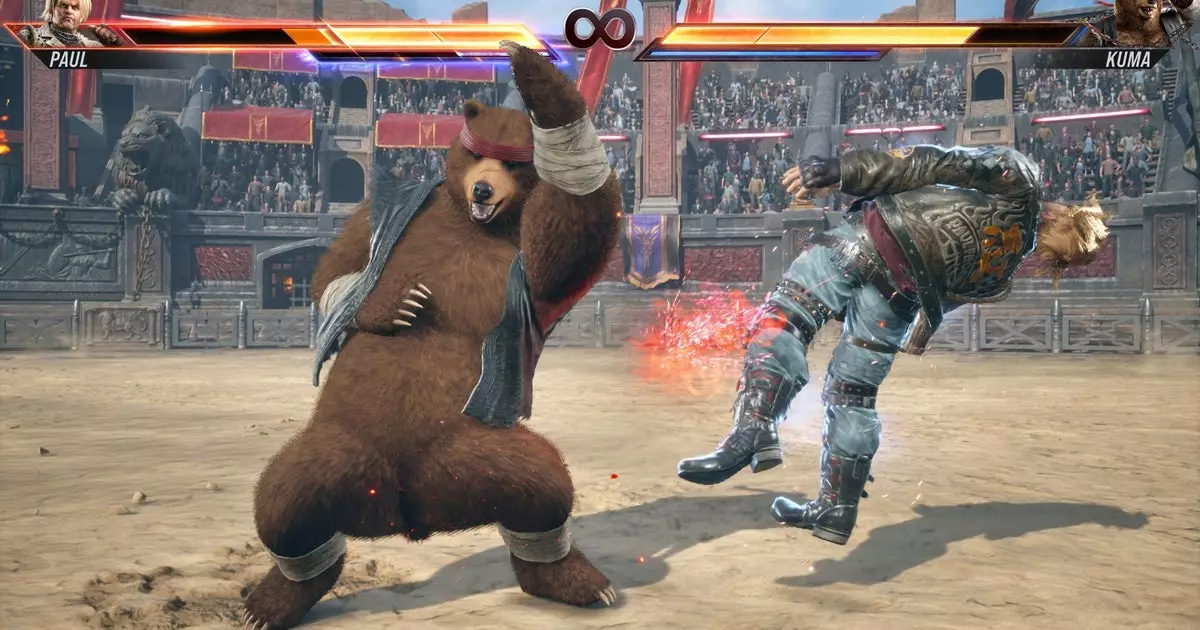In a gaming landscape cluttered with ostentatious features and relentless complexity, the mod “Good Ass Tekken” emerges as a refreshing antidote. The creator, KulaGGin, strips down Tekken 8 to its foundational elements, evoking nostalgia for simpler times in the beloved franchise. By removing contemporary trappings such as the heat bar and rage state, KulaGGin epitomizes a growing desire among some players to revert to a form of gaming that emphasizes purity and skill over flashiness. This desire underscores a crucial point: not all gamers are enamored by the need for perpetual innovation; rather, many long for authenticity and tactical depth that characterized earlier iterations like Tekken 5.
The mod’s transformation of Tekken 8 into a polished homage to its predecessors invites both admiration and critique. In their quest for balance, developers integrate mechanics designed to initiate aggressive playstyles—like the rage drives and various new combat features. While these developments might appeal to a faction of players seeking frenetic action, they often come at the cost of depth. “Good Ass Tekken” dares to ask: what if we focused less on the spectacle and more on strategic warfare?
Challenging the Modern Norms of Gameplay
Within the gaming community, the removal of flashy enhancements has sparked debate about what truly constitutes a “good” fighting game. By eliminating the heat mechanics that let players chip away at health while blocked and the rage state that serves as a last-ditch effort for momentum, the modding effort argues for a purer challenge grounded in fundamentals. KulaGGin’s approach to broaden backdash distance and make launching attacks unreliable when whiffed alters the flow of combat in a way that many veteran players may find liberating.
But herein lies an interesting paradox: is the stripping away of contemporary mechanics a regression or an evolution? Certainly, the revitalized focus on footsies and tactical positioning incentivizes a higher caliber of play that may feel exhilarating for seasoned Tekken veterans. However, for newer players accustomed to modern conveniences, this might present an obstacle laden with frustration. The appeal of a “no frills” experience speaks to a niche crowd, yet challenges the very foundations of what developers believe gamers want today.
The Romanticism of Nostalgia
Nostalgia plays a powerful role in gaming culture, where memories of previous iterations often distort the perception of current titles. This inherent yearning for the classic experience allows mods like “Good Ass Tekken” to thrive. Those who loudly lament the changes brought about by modern gaming mechanics find solace in KulaGGin’s vision of what Tekken should be—a space where mastery over the game’s core mechanics reigns supreme rather than flashy, temporary power plays.
The tension between nostalgia and progress often leaves a lasting impact on a game’s community. While new features push players into innovative territories, they frequently pay the price in terms of balance and clarity. A community divided between lovers of classic gameplay and modern innovations exemplifies the reality that no single approach can satisfy every player. “Good Ass Tekken” seeks to draw a line along that sentiment—inviting veterans back while posing a challenge to the established norms without losing the essence of what Tekken is all about.
A Call for Diversification in Gameplay Experiences
In a remarkable way, “Good Ass Tekken” underscores the necessity for diversity in gameplay experiences. The introduction of contrasting modes and community-driven modifications illustrates that players are craving more than linear advancements; they desire options.
Perhaps the future of fighting games lies not in the hedonistic indulgence of complicated systems but in allowing players to choose how they engage with the art of combat. An “old school” mode alongside conventional game mechanics could foster a healthier ecosystem where both purists and progressive players coexist, each exploring their own methods of mastery.
KulaGGin’s endeavor is not merely about criticism; it serves as a reminder that fighting games have the potential to be a robust tapestry woven from a multitude of styles and preferences. Amidst all the noise and chaos, perhaps it is in this realm of balance and thoughtful gameplay mechanic development that the true essence of competitive gaming can be discovered.

